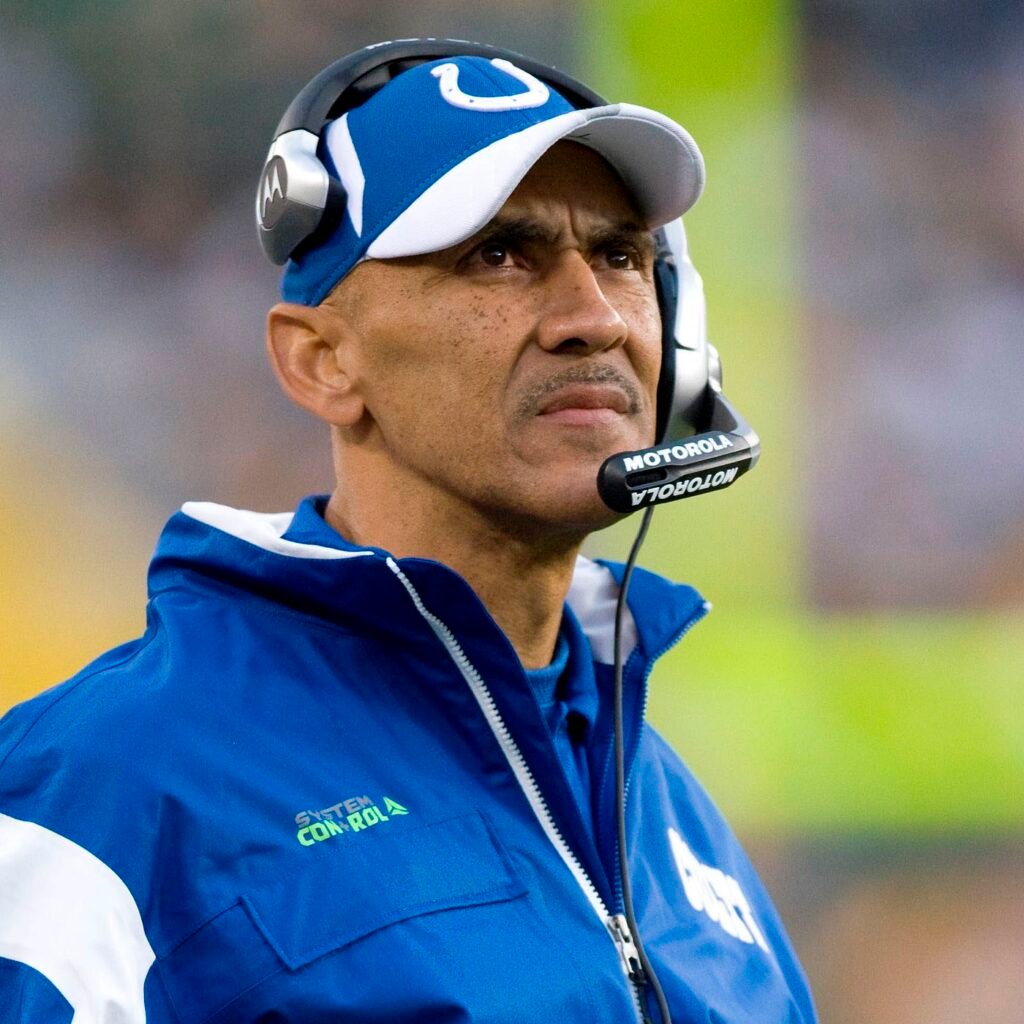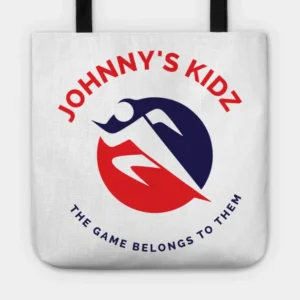The Parents’ Role in Supporting Youth Athletes
Emotional Support: The Heartbeat of Athletic Success
Introduction
Supporting youth athletes is a journey filled with both immense rewards and inevitable challenges.
For parents, the path can often seem winding and uncertain, marked by moments of pride and times of doubt.
As our children lace up their shoes and step onto the field, court, or track, our role transforms into one of utmost importance.
We become their biggest cheerleaders, their emotional anchors, and their guides through the highs and lows of athletic pursuits.
But how can you best support our young athletes?
How do we strike the right balance between encouragement and pressure, between fostering a positive environment and setting realistic expectations?
These questions are at the heart of every parent’s journey in nurturing a young athlete.
It’s not just about showing up for games or practices; it’s about understanding the deeper dynamics of our involvement and its impact on our children’s overall development.
In this blog post, I will explore the multifaceted role of parents in supporting their youth athletes.
I’ll delve into practical strategies to provide encouragement without overstepping, create an environment conducive to growth and enjoyment, and balance our expectations with our children’s aspirations.
By understanding these elements, we can help our young athletes flourish not only in their sports but in their personal lives as well.
Recognize the Power of Encouragement
Encouragement goes beyond mere praise; it’s about instilling confidence and resilience in our children.
It involves celebrating their efforts, not just their victories, and helping them see failures as opportunities for growth.
When parents show genuine enthusiasm for the process, rather than just the outcomes, children are more likely to develop a love for their sport and a desire to improve.
Additionally, creating a positive environment is crucial.
This means fostering a space where young athletes feel safe to express themselves, make mistakes, and learn at their own pace.
It involves maintaining open lines of communication, being attentive to their needs, and promoting a healthy balance between sports and other life activities.
Consequently, a supportive environment where children feel valued and understood boosts their self-esteem and motivation.
Moreover, balancing expectations is perhaps the trickiest part of supporting a youth athlete.
While it’s natural to have dreams for our children, it’s crucial to align those dreams with their interests and capabilities.
Setting realistic, achievable goals together can help keep the pressure manageable and the experience enjoyable.
Encouraging self-set goals allows children to take ownership of their athletic journey, fostering a sense of autonomy and intrinsic motivation.
Ultimately, our goal as parents should be to support the holistic development of our young athletes.
Sports can be a powerful tool for teaching life skills such as teamwork, discipline, and perseverance.
By being mindful of our role and its impact, we can help our children harness these lessons, equipping them for success both on and off the field.
So, join me as we dive deeper into each of these areas, offering insights and practical tips to help you become the best possible supporter of your young athlete.
Together, we can create an environment where our children can thrive, enjoy their sporting endeavors, and grow into well-rounded individuals.

“The primary role of parents in youth sports is to be a source of support and encouragement. By creating a positive, pressure-free environment, parents can help their children develop a love for sports that lasts a lifetime.”
– Dr. Jim Taylor, Sports Psychologist and Author
Encouragement and Motivation
When supporting youth athletes, encouragement is the secret sauce for any young athlete’s success.
Consistent positive reinforcement can skyrocket a child’s confidence and drive.
It’s not just about the big wins—celebrate every achievement, no matter how small.
Did they hustle extra hard at practice? High-five for that!
By showing that effort is just as important as results, we teach our kids that their hard work truly matters.
But let’s get real. It’s not all about words. Showing up matters big time. Be present at their games and practices, even if you’re juggling a million things.
Your presence screams, “I believe in you!” And believe me, that shout of confidence can make a huge difference.
Think about it: wouldn’t you be more pumped if you had your own cheering squad? Your kid feels the same.
So, clear that calendar once in a while and show up. It’s like giving their self-esteem a shot of adrenaline.
And don’t forget, a little humor can go a long way. Lighten the mood after a tough game with a joke or a fun memory.
Laughter is a great stress reliever and helps keep the experience enjoyable. Remember, sports are supposed to be fun!
Handling Disappointment: Turning Losses into Lessons
Sports come with a fair share of gut-wrenching losses and disappointing performances. But hey, that’s life, right?
The key is teaching our kids to handle these setbacks like champs. This is where parents need to step up and model resilience.
Show them how to turn those losses into lessons.
It’s all about that growth mindset—learning from the falls and getting back up stronger.
When your kid has a rough game or takes a loss hard, flip the script. Focus on the positives.
Maybe they lost, but did they show great sportsmanship? Point that out. Discuss what can be learned from the experience.
This approach not only eases the sting of disappointment but also teaches them valuable life skills.
Encourage them to set realistic goals. Improvement doesn’t happen overnight; it’s a marathon, not a sprint.
PRO TIP: Share Stories of Athletes Who’ve Bounced Back from Failure.
Michael Jordan got cut from his high school basketball team. Serena Williams has faced crushing defeats.
But they didn’t quit. These stories can provide a powerful perspective and a hefty dose of inspiration.
Your kid will see that even the greats stumble, and what matters most is how they get back up.
In essence, our role as parents is to be the emotional bedrock for our young athletes.
By balancing encouragement with reality checks and turning disappointments into growth opportunities, we can help our children develop not just as athletes but as resilient, confident individuals ready to tackle whatever life throws their way.
So, next time your kid faces a setback, remember to blend in a bit of encouragement, a dash of humor, and a whole lot of love.
It’s a winning recipe for success both on and off the field.
Physical Support
Building Strong Foundations for Young Athletes
Nutrition and Rest: Fueling the Future Stars
Parents play a pivotal role in ensuring their young athletes get the nutrition and rest they need.
Think of it this way: balanced meals rich in proteins, carbs, and healthy fats are like premium fuel for their bodies.
Without it, they can’t perform at their best. It’s not just about eating; it’s about eating right. And don’t get me started on rest.
Emphasizing downtime is crucial.
It’s the secret sauce to preventing injuries and keeping those little dynamos running smoothly.
Dive into some nutritional research. Understand what your mini athlete needs to chow down on.
Think lean meats, whole grains, and a rainbow of veggies. But don’t forget the snacks.
Healthy nibbles before and after games can make a world of difference. And hydration? It’s a game-changer.
Water, water, and more water. Get them sipping regularly, especially when they’re active.
Encouraging Safe Practices: Playing Smart, Staying Safe
Safety is non-negotiable in youth sports. As parents, we need to be the frontline defenders.
That means getting clued up on the right gear, safety protocols, and spotting overuse injuries before they become big problems.
Encourage your kids to speak up if something feels off. A little discomfort today can mean big trouble tomorrow if ignored.
Take it a step further by ensuring coaches and sports programs are on the same page. Check out the facilities.
Are they up to snuff? Are warm-up and cool-down routines a thing? Proper supervision during practices and games is a must.
Remember, Not All Sports Are Created Equal.
Be aware of the specific risks your child’s sport involves and take proactive measures to keep them safe.
In essence, providing physical support isn’t just about handing them a healthy snack or a bottle of water.
It’s about creating a foundation where they can thrive.
It’s about being that silent partner in their athletic journey, making sure their bodies are as ready as their minds.
So next time you’re packing that lunchbox or driving them to practice, remember the role you play is crucial.
Your efforts help build not just athletes, but strong, healthy, and smart individuals ready to take on the world.
“The number one reason kids play sports is because it’s fun. When parents and coaches focus too much on winning, they risk taking away that fun, which can lead to burnout and dropout.”
— Dr. Amanda Visek, developer of the Fun Integration Theory in youth sports

Practical Support
Mastering the Jugglers’ Art
Time Management: The Ultimate Balancing Act
Balancing schoolwork, sports, and other activities can feel like spinning plates on sticks.
Parents can lend a hand by teaching effective time management skills.
Imagine being a kid trying to handle homework, practice, and maybe even some chill time—it’s overwhelming.
Creating a structured schedule can make it all seem manageable.
First off, help your child prioritize.
What needs to get done first? Schoolwork? Practice? Show them how to plan their days and weeks.
It’s a life skill that pays dividends down the road.
But hey, life happens. Flexibility is key. When conflicts pop up, being understanding reduces stress.
It’s like being the cool parent who gets it, rather than the drill sergeant.
Transportation and Logistics: The Parental Uber Service
Let’s be real. Being a parent often means being a chauffeur.
Ensuring your young athlete makes it to practices, games, and tournaments is part of the job.
But with a bit of organization, it doesn’t have to be a nightmare.
Plan ahead. Mark those games and practices on the calendar. Know when you need to be where.
And here’s a golden tip: carpooling. Share the load with other parents.
Not only does it make your life easier, but it also helps build a community.
Plus, kids love bonding with teammates outside of practice.
And don’t forget the gear. Make sure your child’s equipment and uniforms are ready to go.
Last-minute scrambles to find that missing shin guard? Nobody needs that stress. Keep everything in one place, ready for action.
It’s like being a super-organized ninja, ready to strike at a moment’s notice.
In short, being there practically means being their behind-the-scenes manager.
By helping them manage their time and handling the logistics smoothly, you’re setting them up not just for success in sports, but in life.
So next time you’re driving the minivan loaded with kids to practice, remember, you’re the unsung hero making it all possible.
Social Support
Fostering Team Spirit: Beyond Just Being a Cheerleader
Youth sports are goldmines for learning teamwork and cooperation.
But here’s the kicker: parents can supercharge that team spirit.
Encourage your kid to forge strong bonds with their teammates.
And when game day rolls around, cheer for the whole team, not just your mini-LeBron or Serena.
Show kids that collective effort trumps individual glory.
Steps to Boost Team Spirit:
- Encourage Strong Bonds: Help your child connect with teammates.
- Cheer for Everyone: Support the whole team on game day.
- Organize Team Activities: Plan pizza parties or fun outings to build cohesion.
Model good sportsmanship yourself. Respect coaches, referees, and other players. Your kids are watching, and they’ll follow your lead.
Dealing with Peer Pressure: Keeping It Real
As kids grow, peer pressure sneaks into the picture, both on and off the field.
Keeping those lines of communication wide open is crucial. Encourage your child to make decisions that align with their values and goals.
Empower them to stay true to themselves, even when the pressures on.
Tackling Peer Pressure:
- Open Communication: Keep talking and listening.
- Align Decisions with Values: Help them make choices that reflect their true selves.
- Role-Playing: Practice responses to peer pressure scenarios.
Reinforce that their choices should reflect their own values and long-term goals, not just the fleeting approval of peers.
A strong sense of self is like a shield against negative influences.
So, in essence, fostering a positive team spirit and helping kids navigate peer pressure isn’t just about what happens on the field.
It’s about creating a supportive environment where they can thrive as both athletes and individuals.
As parents, your role is to be their guide, their cheerleader, and their rock.
By doing so, you help them build not just a strong team, but strong character too.

“Our role as parents is to provide unconditional love and support regardless of performance. This creates a safe space for our children to explore, learn, and grow.”
— Dr. John O’Sullivan, founder of Changing the Game Project and author of “Changing the Game: The Parent’s Guide to Raising Happy, High-Performing Athletes and Giving Youth Sports Back to Our Kids”
Mental Support
Developing a Healthy Mindset
The mental game is just as crucial as the physical one.
Parents can help their kids build a healthy mindset with positive self-talk and visualization techniques.
Focus on what they can control—effort and attitude. This reduces anxiety and boosts performance.
Key Techniques:
- Positive Self-Talk: Teach kids to replace negative thoughts with positive ones. Instead of “I can’t do this,” think “I’ve got this!”
- Visualization: Encourage them to picture themselves succeeding. It builds confidence.
Mental Skills Training:
- Goal Setting: Small, achievable goals keep motivation high.
- Relaxation Techniques: Simple breathing exercises can do wonders.
- Concentration Exercises: Keep the mind sharp and focused.
Remind them that the journey matters more than the destination.
Enjoying the process fosters a lifelong love for sports.
Coping with Stress
Stress is part of life—competition, school, and everything in between.
Be on the lookout for signs of stress in your young athlete. Create a safe space where they can express their feelings.
Stress-Busting Activities:
- Mindfulness: Helps them stay present and calm.
- Yoga: Stretching out stress—literally.
- Family Time: Sometimes, a little TLC goes a long way.
Teach them healthy coping mechanisms. Deep breathing, journaling, or engaging in a favorite hobby can make a big difference.
Encourage open communication. Validate their feelings to help them feel understood and supported.
Sometimes, they might need extra support.
Recognize when to bring in a coach, counselor, or mental health professional. It’s all part of being a supportive parent.
Quick Tips:
- Deep Breathing: Easy and effective.
- Journaling: A great way to process emotions.
- Hobbies: Keep the fun alive and stress at bay.
For more on mental skills training, check out this guide.
And remember, it’s all about balance and support.
“Encouragement and support from parents can make a huge difference in a young athlete’s experience. It’s important for parents to focus on effort and enjoyment rather than just outcomes.”
— Julie Foudy, two-time Olympic gold medalist and FIFA Women’s World Cup champion

Educational Support
Understanding the Game
Parents don’t need to be experts in their child’s sport. But having a basic understanding can work wonders.
Knowing the rules, positions, and strategies opens doors to meaningful conversations with your child.
It also allows you to offer informed support and encouragement.
Getting Started:
- Learn the Basics: Understand the rules, positions, and key strategies.
- Engage in Conversations: Talk with your child about their experiences and challenges.
- Support and Encourage: Use your knowledge to provide meaningful support.
Attend informational sessions or dive into reading materials about the sport.
This can help you become more knowledgeable and enhance your ability to support your child effectively.
Plus, showing genuine interest strengthens the parent-child bond, making the sports experience more enjoyable for both.
Advocating for Your Child
Sometimes, parents need to step in and advocate for their young athlete.
Whether addressing concerns with coaches or ensuring fair treatment in school sports programs, your role as an advocate is crucial.
It involves respectful communication and focusing on what’s best for your child.
This proactive approach helps create a positive and supportive environment.
Steps to Effective Advocacy:
- Respectful Communication: Approach coaches and stakeholders with a collaborative mindset.
- Focus on the Child’s Best Interests: Keep your child’s well-being at the center of discussions.
- Address Concerns Early: Prevent small issues from escalating by addressing them promptly and constructively.
Teaching children to advocate for themselves is equally important. Empower them to take ownership of their athletic and academic journeys.
This self-advocacy not only builds confidence but also prepares them for future challenges.
Empowering Self-Advocacy:
- Model Respectful Advocacy: Show how to address concerns respectfully.
- Encourage Ownership: Let them take the lead in discussions when appropriate.
- Build Confidence: Reinforce their ability to speak up for themselves.
Engaging in your child’s sport doesn’t mean you need to be an expert. A basic understanding can make a big difference.
You’ll be able to support your child better, engage in the sports community, and enjoy the journey together.
And when it comes to advocacy, remember to approach it with respect, collaboration, and a focus on your child’s best interests.
This way, you’re not just supporting their athletic endeavors but also nurturing their personal growth.
For further reading on supporting young athletes, check out this guide from the Positive Coaching Alliance.
Long-Term Development
Encouraging Lifelong Fitness
One of the most crucial roles parents play in their children’s athletic journey is promoting a lifelong commitment to fitness and health.
Encouraging participation in sports should focus not only on current performance but also on developing a love for physical activity that endures into adulthood.
Parents can model this behavior by leading active lifestyles themselves and engaging in physical activities as a family.
Promoting Lifelong Fitness:
- Model Active Lifestyles: Be a role model by staying active yourself.
- Family Activities: Engage in physical activities as a family, like hiking, biking, or playing sports together.
Encouraging a variety of sports and activities can help prevent burnout and overuse injuries.
By exposing children to different types of physical activities, parents can help them develop a broad set of motor skills and discover what they enjoy most.
This approach fosters a well-rounded appreciation for fitness and health.
Variety in Sports:
- Prevent Burnout: Keep things fresh by switching up activities.
- Develop Motor Skills: Exposure to different sports helps build a versatile skill set.
- Discover Interests: Let kids try various activities to find what they love.
Balancing Academics and Athletics
Balancing academics and athletics are a critical aspect of a young athlete’s development.
Parents should emphasize the importance of education and ensure that their children do not neglect their academic responsibilities.
Teaching children to manage their time effectively can help them excel in both areas.
Time Management:
- Teach Prioritization: Help children learn to prioritize tasks.
- Create Schedules: Use planners or calendars to balance school and sports.
Encouraging good study habits and providing a quiet space for homework can support academic success.
Additionally, parents should communicate with teachers and coaches to ensure that their child’s commitments are manageable.
When children see that their parents value both their education and their sports, they are more likely to strive for excellence in both areas.
Supporting Academics:
- Good Study Habits: Encourage regular study times and techniques.
- Quiet Homework Space: Ensure there’s a distraction-free area for schoolwork.
- Open Communication: Talk with teachers and coaches to align on expectations and schedules.
When kids know that their education is just as important as their sports, they’re more likely to strive for excellence in both.
Balance is key. Show them that it’s possible to be both a scholar and an athlete.
This balance not only promotes academic and athletic success but also teaches valuable life skills like time management and self-discipline.
Encouraging a lifelong love of fitness and maintaining a balance between academics and athletics sets the stage for overall success.
Parents who model active lifestyles and support their children’s diverse interests in sports can prevent burnout and cultivate a well-rounded approach to health.
At the same time, emphasizing the importance of education and time management helps young athletes thrive both on the field and in the classroom.
By promoting these values, parents can guide their children toward a balanced, healthy, and fulfilling life.
For more tips on fostering lifelong fitness and balancing academics and athletics, visit Aspen Institute’s Project Play.

“The best way to develop a young athlete is to encourage them to try different sports and activities. This not only helps prevent burnout but also aids in their overall development as well-rounded individuals.”
— Tony Dungy, Hall of Fame NFL coach and author of “Uncommon: Finding Your Path to Significance”
The Role of Coaches and Mentors
Building a Positive Relationship with Coaches
Coaches are pivotal in a young athlete’s life. Parents should aim to build a positive relationship with them.
Keep open lines of communication, respect the coach’s decisions, and support their coaching philosophy.
This creates a more supportive environment for your child.
Steps to Build a Strong Parent-Coach Relationship:
- Open Communication: Regularly talk with the coach about your child’s progress and any concerns.
- Respect Decisions: Trust the coach’s expertise and respect their choices.
- Support Philosophy: Align with the coach’s approach and methods.
Encourage your child to communicate directly with their coach about goals, concerns, and progress.
This fosters independence and responsibility in young athletes.
By working together, parents and coaches can help children achieve their full potential while ensuring a positive and enjoyable sports experience.
Encouraging Direct Communication:
- Set Goals: Have your child discuss their aspirations with the coach.
- Express Concerns: Teach them to voice any worries or issues respectfully.
- Track Progress: Encourage regular updates on their development.
Seeking Out Mentors
Beyond coaches, mentors offer invaluable guidance and support.
Mentors could be older athletes, family friends, or professionals who share their experiences and advice.
These relationships provide children with additional perspectives and role models.
Finding and Connecting with Mentors:
- Identify Potential Mentors: Look for individuals who can positively influence your child.
- Facilitate Connections: Introduce your child to potential mentors.
- Encourage Engagement: Motivate your child to seek advice and support from these mentors.
Mentors can help young athletes navigate challenges, set realistic goals, and develop a deeper understanding of their sport.
This support network is instrumental in their personal and athletic growth.
Benefits of Mentorship:
- Navigating Challenges: Mentors provide guidance through tough times.
- Setting Goals: Help children establish and achieve realistic objectives.
- Deeper Understanding: Offer insights and knowledge about the sport.
In summary, fostering positive relationships with coaches and seeking out mentors is crucial for a young athlete’s development.
Parents play a significant role in facilitating these connections and supporting their child’s journey.
Open communication, respect, and collaboration with coaches create a supportive environment.
Meanwhile, mentors offer additional guidance and perspectives, helping young athletes navigate their paths more effectively.
For more insights on the role of coaches and mentors, visit TrueSport.
Addressing Burnout and Overtraining
Recognizing the Signs of Burnout
Burnout is a common issue in youth sports, and parents need to be vigilant in recognizing its signs. Symptoms of burnout can include:
- Decreased Performance: Sudden drops in performance levels.
- Lack of Enthusiasm: Losing interest in practices and games.
- Physical Fatigue: Constant tiredness and low energy.
- Emotional Exhaustion: Feeling emotionally drained and overwhelmed.
If you notice these signs, address them promptly to prevent long-term negative effects.
Encourage open communication about how your child feels regarding their sport. If burnout is suspected, consider the following steps:
- Take a Break: Allow time off from the sport to rest and recover.
- Reduce Intensity: Scale back the intensity and frequency of training.
- Explore Other Activities: Introduce your child to different activities for variety and fun.
Ensuring that sports remain fun and enjoyable is crucial for maintaining a healthy balance. Sports should be a source of joy, not stress.
Promoting Balance and Fun
Preventing burnout starts with promoting balance and fun in sports.
Children need time to enjoy other activities and interests outside of their primary sport.
Encourage unstructured play and leisure activities to help them relax and recharge.
Strategies for Promoting Balance:
- Diverse Interests: Encourage your child to pursue hobbies and interests outside of sports.
- Unstructured Play: Allow time for spontaneous, fun activities that are not related to their sport.
- Family Time: Spend quality time together doing non-sport-related activities.
Listening to your child’s feedback about their sports experiences is key. Be willing to make adjustments as needed to ensure their well-being. A positive and enjoyable sports environment sustain their interest and enthusiasm over the long term.
Creating a Positive Sports Experience:
- Regular Check-ins: Talk to your child about their feelings towards their sport.
- Flexibility: Be open to adjusting schedules and commitments based on their feedback.
- Focus on Fun: Keep the emphasis on enjoying the game, not just winning.
Recognizing and addressing burnout is essential for the health and happiness of young athletes.
By promoting a balanced approach and ensuring that sports remain fun, parents can help their children maintain a lifelong love for physical activity.
Keep an eye out for the signs of burnout and be proactive in creating a supportive and enjoyable environment.
For more information on preventing burnout in youth sports, visit KidsHealth.
Conclusion
The role of parents in supporting their youth athletes is multifaceted and deeply impactful.
By providing emotional, physical, practical, social, mental, educational, and long-term developmental support, parents can help their children thrive in their athletic pursuits.
It’s about creating a balanced environment where young athletes feel valued, motivated, and equipped to handle challenges both on and off the field.
Through unwavering support, parents can help their children become better athletes and well-rounded individuals.
Ultimately, the Journey of a Youth Athlete is a Shared Experience.
The support and guidance of parents are essential in shaping not just the athlete, but the person their child will become.
This journey, filled with highs and lows, is an opportunity for parents to instill values, build character, and create lasting memories with their children.
As parents navigate this journey, their role as supporters, mentors, and advocates will leave an indelible mark on their child’s athletic and personal development.
By actively participating in their child’s athletic journey, parents not only support their child’s physical development but also contribute to their emotional resilience, mental fortitude, and social skills.
These attributes are invaluable, extending far beyond the sports field into all areas of life.
Therefore, the role of parents in youth sports is not just about winning games or achieving athletic milestones; it is about nurturing a well-rounded, confident, and capable individual ready to face the future with determination and grace.
Parents, remember that your involvement goes beyond the sidelines.
It’s in every pep talk, every car ride home, and every moment of encouragement.
Your presence and support are the foundation upon which young athletes build their dreams and aspirations.
So, lace up those metaphorical sneakers, step into your role with enthusiasm, and cherish every moment of this incredible journey with your child.
For more insights on supporting youth athletes, visit Aspen Institute’s Project Play and Positive Coaching Alliance.
Call to Action
Join Coach Johnny in cultivating the next generation of youth sports athletes.
Parents, your role in your child’s athletic journey is more crucial than ever.
Embrace the opportunity to be their biggest supporter, their trusted mentor, and their steadfast advocate.
Dive into their world of sports with enthusiasm and dedication.
Start today by:
- Learning the Basics: Understand the rules and strategies of their sport.
- Encouraging Balance: Promote a healthy mix of sports, academics, and leisure activities.
- Building Relationships: Foster strong connections with coaches and potential mentors.
- Recognizing Burnout: Stay vigilant for signs of burnout and address them promptly.
- Advocating Positively: Be proactive in ensuring your child’s best interests in their athletic and academic environments.
Your involvement doesn’t end at the field’s edge.
It continues at home, in conversations, and through every encouraging word you offer.
By actively participating in their athletic and personal development, you help shape not just athletes, but resilient, confident, and well-rounded individuals.
Take the first step now.
Engage with your child about their goals, share their joys and challenges, and show them the unwavering support they need to succeed.
Let’s build a future where our young athletes thrive both on and off the field.
Your journey as a supportive parent starts here. Make every moment count.
Join the JK Tribe
Coach Johnny is a youth sports coach with over 30 years of experience. He continues to coach various sports in various age groups (pre-high school) for all genders. He is also the founder of Johnny’s Kidz and the JK Tribe. If you would like to support his journey and become a Tribe member, reach out and Buy Coach A Cup of Coffee.
Remember, The Game Belongs to Them!
DISCLOSURE: We often review or link to products and services we regularly use and think you might find helpful. We use referral links wherever possible, which means if you click one of the links in this video or description and make a purchase, we may receive a small commission or other compensation.
We’re big fans of Amazon, and many of our links to products/gear are to those products on Amazon. We participate in the Amazon Services LLC Associates Program, an affiliate advertising program designed to allow us to earn fees by linking to Amazon.com and related sites.

